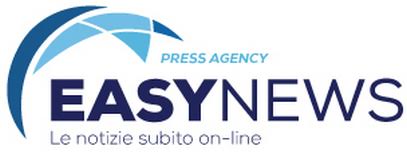
A 30-fold rise of measles cases in 2023 in the WHO European Region warrants urgent action
Copenhagen, 23 January 2024
The WHO European Region is experiencing an alarming rise in measles cases. Over 30 000 measles cases were reported by 40 of the Region’s 53 Member States between January and October 2023. Compared to 941 cases reported in all of 2022, this represents a more than 30-fold rise. The rise in cases has accelerated in recent months, and this trend is expected to continue if urgent measures are not taken across the Region to prevent further spread.
“We have seen in the Region not only a 30-fold increase in measles cases, but also nearly 21 000 hospitalizations and 5 measles-related deaths. This is concerning” explained Dr Hans Henri P. Kluge, WHO Regional Director for Europe. “Vaccination is the only way to protect children from this potentially dangerous disease. Urgent vaccination efforts are needed to halt transmission and prevent further spread. It is vital that all countries are prepared to rapidly detect and timely respond to measles outbreaks, which could endanger progress towards measles elimination.”
Where vaccinations are missed, outbreaks can follow – affecting both young and old
In 2023 measles has affected all age groups, with significant differences in the age distribution of cases among countries. Overall, 2 in 5 cases were among children 1 to 4 years of age, and 1 in 5 cases were among adults 20 years and older. From the beginning of the year through to October, 20 918 hospitalized cases were reported, and 5 measles-related deaths were reported by 2 countries.
This resurgence of measles is largely attributed to backsliding in vaccination coverage in the countries of the Region during 2020 to 2022. The COVID-19 pandemic significantly impacted immunization system performance in this period, resulting in an accumulation of un- and under-vaccinated children.
Reported national coverage with the first dose of measles-containing vaccine in the Region decreased from 96% in 2019 to 93% in 2022, while second-dose coverage fell from 92% in 2019 to 91% in 2022. In all, over 1.8 million infants in the Region missed their measles vaccination between 2020 and 2022.
Resumption of domestic and international travel and removal of social and public health measures linked to the COVID-19 pandemic have increased the risk of cross-border disease transmission and spread within communities, especially in un- and under-vaccinated communities.
Cases have been reported in many countries where measles has been declared eliminated as an endemic disease. Countries that have achieved measles elimination are still at risk of large and disruptive outbreaks following importation of the measles virus from other countries if very high rates of routine childhood vaccination (at least 95%) are not sustained in all communities.
Local solutions needed to close subnational gaps in coverage
This alarming resurgence of measles cases in 2023 further emphasizes the importance of identifying and addressing immunization inequities in all countries to attain and maintain high immunization coverage in every community. Locally tailored immunization strategies that target the identified disparities and promote vaccine equity must be fundamental to our efforts moving forward.
Intensified routine immunization activities and catch-up campaigns have been initiated across several countries in the Region. WHO/Europe, in collaboration with partners, is supporting countries with large outbreaks in conducting case investigations, identifying and vaccinating susceptible contacts, implementing infection control in health-care settings, raising awareness and addressing public concerns, enhancing disease surveillance, and planning and implementing outbreak response immunization.
However, all countries, even those that might not yet have measles transmission, must carefully assess their immunity gaps and programme weaknesses and take immediate action to address them.
Getting back on track towards Region-wide measles elimination
Elimination of both measles and rubella remains a priority goal for all countries of the Region. The cornerstones for eliminating these diseases remain high population immunity, closure of immunity gaps in the population, and elimination-standard surveillance to monitor disease occurrence and take public-health action.
To regain progress towards measles elimination, it is imperative that countries achieve and maintain over 95% coverage with 2 doses of measles-containing vaccine. Attaining high routine vaccination coverage and closing any immunity gaps must therefore remain top priorities for all countries.
ENDS
Contacts:
Bhanu Bhatnagar, bbhatnagar@who.int
Veronika D'Anna, dannav@who.int
Press Office, eupress@who.int
This information was brought to you by Cision http://news.cision.com
If you would rather not receive future communications from WHO Regional Office for Europe, please go to https://optout.ne.cision.com/en/2A1LE65EHuqkQaqKKfDDMUC5wnNLSTxdYZZRhZkm1xpnbwV43x2wU1vW2LHdQuYZtwXpP56iV6YwPV2a3xCX96V3Zggxy9jUEdbi2GN9o2vK589HvXeFhwNzrmHxY1Wpo862.
WHO Regional Office for Europe, Marmorvej 51, Copenhagen, 2100 Denmark

